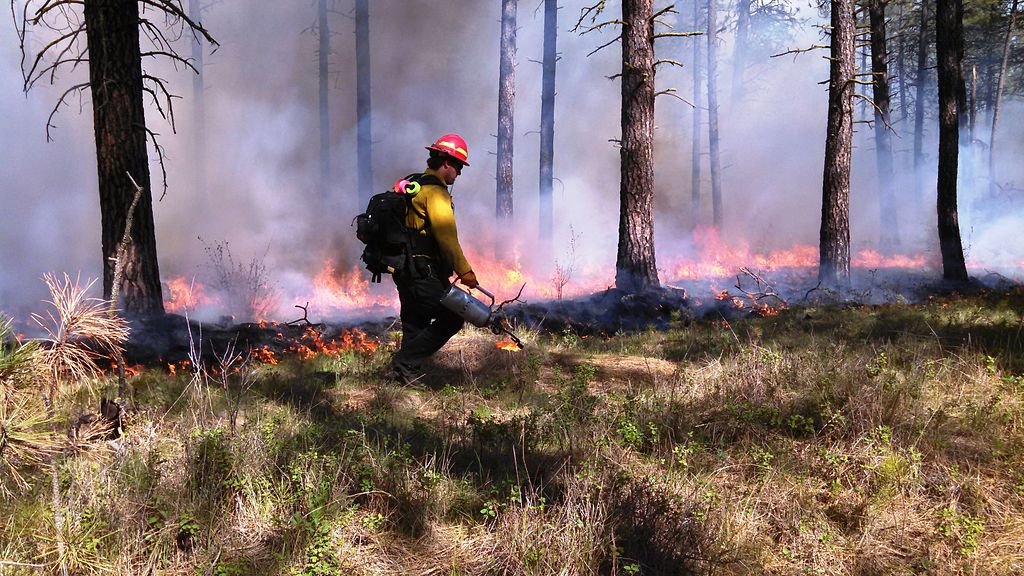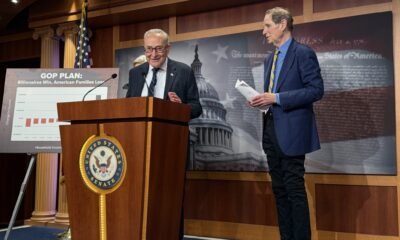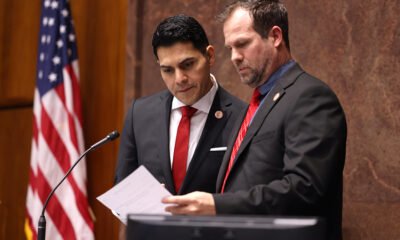arizona
Senate Action Required Now to Save Wildland Firefighter Pay Raises from Vanishing in Days

The impending expiration of a $20,000 salary increase for wildland firefighters is set to occur next week unless Congress intervenes. This salary boost, part of the 2021 infrastructure law, allocated $600 million to lift the wages of nearly 11,200 federal wildland firefighters for two years. The raise offered either a $20,000 increase or a 50% boost to base salaries.
According to Grassroots Wildland Firefighters, an advocacy group, federal wildland firefighters currently make as little as $15 per hour, with entry-level positions earning just under $27,000 annually. These wages fall short compared to the compensation of several state employees in similar roles.
The challenge lies in the fact that Congress tied the higher pay rate to government spending, which is set to conclude on December 20. While lawmakers are expected to pass a continuing resolution to maintain current spending levels, the firefighter salary boost requires separate legislation to extend beyond the deadline.
Advocates for the firefighters, backed by some congressional members, are urging that the pay increase be made permanent as the current legislative session nears its conclusion. President Joe Biden also emphasized the need for a disaster relief spending bill, following hurricanes Helene and Milton, which should address firefighter pay reform.
Proposed in this disaster relief bill is $24 billion earmarked for the U.S. Department of Agriculture, alongside requests for “statutory language” to support comprehensive pay reform for federal wildland firefighters. This appears to be the most viable option for addressing salary concerns this year.
As Congress contemplates a stopgap measure to fund the government through the early months of 2024, appropriators are considering revising annual funding bills to address this issue. One Republican proposal includes a $330 million allocation for a permanent pay increase aimed at replacing the expiring infrastructure salary boosts.
Supporters assert that establishing a baseline in an annual spending bill could ensure consistent salaries and mitigate the uncertainty tied to one-time funding expirations. Idaho Republican Mike Simpson and Oregon Republican Lori Chavez-DeRemer highlighted this necessity in an op-ed, advocating for a long-term solution rather than temporary measures.
Recently, a unified call for funding cuts has emerged from Washington, spurred by Republicans who will regain control with Donald Trump’s anticipated return to the Oval Office. Trump has enlisted entrepreneurs Elon Musk and Vivek Ramaswamy to explore federal spending reductions, with estimates suggesting up to $2 trillion could be saved—though specifics remain unclear.
Simpson, who leads the bill’s drafting process and supports Musk and Ramaswamy’s intentions, has indicated that while he favors efficiency in federal spending, he will resist cuts in critical areas, although he did not specifically mention firefighter salaries.
Meanwhile, the Senate has yet to pass Simpson’s bill due to opposition from Democrats, who criticize its proposed cuts to the Interior Department and EPA. However, a companion bill from Senator Jeff Merkley—offering a permanent salary increase for wildland firefighters—has received committee approval, reflecting a broader recognition of their essential role in managing increasingly severe wildfires.
As the deadline looms, the fate of wildland firefighters’ salaries hangs in the balance, prompting urgent discussions within Congress and calls for decisive action.
Last updated 1:04 p.m., Dec. 11, 2024

















